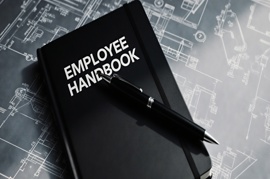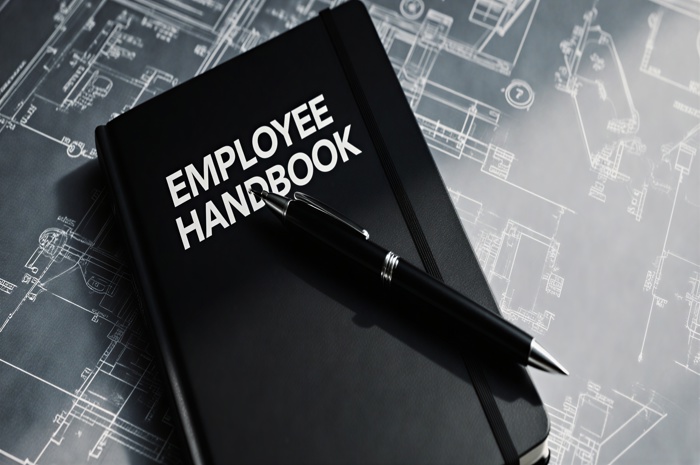There are many reasons as to why sole traders decide to incorporate their businesses and continue their entrepreneurial journey through a limited company. For some further in-depth details on that, you may find our article on 'Changing from a Sole Trader to a Limited Company' helpful. However, if you are the director a limited company either as a recent start up or after changing your company trading status to incorporated, you need to consider whether you are an employee and the implications this has for tax for the company and you personally.
Employment Status
- Worker: A person is generally classed as a 'worker' if they have a contract or other arrangement to do work or services personally for a reward (money or benefit in kind). Workers occasionally do work for a specific business and their contract with the business uses terms like 'casual', 'freelance' or something similar.
- Employee: A person who works under an employment agreement; all employees are workers, but the main distinction is that employees have extra employment rights and responsibilities.
- Self-employed and contractor: A person who runs a business for themselves and takes responsibility for its success or failure; self-employed workers are not paid through PAYE (Pay As You Earn), and therefore they do not have the rights and responsibilities of an employee. Self-employed people are responsible for paying their own National insurance (NI) and tax. Someone can be both employed and self-employed. Contractors can be self-employed, have the employment status of a worker, or have the employment status of an employee.
- Director: Company directors run limited companies on behalf of shareholders; they have different rights and responsibilities from employees and are classed as 'office holders' for tax and National Insurance contributions.
- Office holder: A person who has been appointed to a position by a company or organisation but does not have a contract or receive regular payments. They are neither employees nor workers, however if there is an employment contract with the same company, someone can be both an employee and an office holder.
Directors have different employment rights that they are entitled to, and those will depend on the director's role and employment status. This area is very complex as the director can be employed, self-employed or a worker. Notably, in employment law a director of a limited has the status of an office holder. Self-employed people who convert their business to a limited company typically become directors of the company as well as employees of that company.
What is the Employment Status of a Director, an Employee, Self-Employed or an Office Holder?
There are several ways people run their businesses—as sole traders, as directors of limited companies or as partners in a partnerships. Typically, sole traders and individuals in partnerships are treated as self-employed for tax purposes.
On the other hand, directors of limited companies are not self-employed, as if they are paid by the company, this will have to be in the form of an employee salary or if paid a share of profits, then this will be through dividends.
There is often a confusion that once a limited company is formed, its director is both employed (as he can be paid an employee salary) and self-employed (working for himself), but this is not the case because for tax purposes a director is an office holder and if paid through the Company's PAYE (Pay As You Earn) system—an employee. As a new company starting out, often directors do not have the luxury of being paid by the company and often the directors end up loaning the company money.
How Can a Director Pay Themselves Through a Limited Company?
Directors have greater flexibility over how they pay themselves, and by that they can reduce the tax liability due on income. However, it is important to understand the legally acceptable ways of taking money out of a business after the company's incorporation as the company is a separate legal entity to the director. There is often confusion and directors make the mistake of thinking that they can take salary by transferring funds directly from their business—but this is not the case!
i) Taking Salary Through PAYE
ii) Through a Director's Loan
iii) Deducting Dividends
iv) By Reimbursement of Expenses
How Much Tax Do Directors Pay on Their Income?
Directors receive their income as company directors through Payroll minus National Insurance Contributions through PAYE, and the applicable tax rate will depend on the threshold in which the taxable income falls into. There are different rules for dividend payments as dividends are not subject to National insurance contributions and they are classified as investment income. Again, the tax due will depend on the amount of dividends paid out.
What are the Income Tax Rates and Allowances for the Tax Year From 6 April 2024 to 5 April 2025?
For tax year 2024/2025 the applicable allowances are:
Income Tax
| Tax rate | Rate of tax | Annual earnings the rate applies to |
| Basic rate band | 20% | Up to £37,700 |
| Higher rate band | 40% | From £37,701 to £125,140 |
| Additional rate band | 45% | Above £125,140 |
| Tax rate | Rate of tax | Annual earnings the rate applies to |
| Starter tax rate | 19% | Up to £2,162 |
| Basic tax rate | 20% | From £2,163 to £13,118 |
| Intermediate tax rate | 21% | From £13,119 to £31,092 |
| Higher tax rate | 42% | From £31,093 to £125,140 |
| Top tax rate | 47% | Reminder after £125,140 |
| Tax rate | Rate of tax | Annual earnings the rate applies to |
| Starter tax rate | 19% | Up to £2,306 |
| Basic tax rate | 20% | From £2,307 to £13,991 |
| Intermediate tax rate | 21% | From £13,992 to £31,092 |
| Higher tax rate | 42% | From £31,093 to £62,430 |
| Advanced tax rate | 45% | From £62,431 to £125,140 |
| Top tax rate | 48% | Above £125,140 |
Dividend Tax
| Band | Dividend tax rates |
| Basic rate | 8.75% |
| Higher rate | 33.75% |
| Additional rate | 39.35% |
National Insurance Contributions (NICs)
To Summarise
Understanding the director's employment status can feel complicated, so here are the most important points to remember:
- Separation between the company and the director—funds should be kept separate.
- A company director is regarded as an employee for most statutory purposes if they have a service contract with the company.
- Self-employed people run their business by themselves as sole traders or as part of a partnership, as opposed to employees who work under an employment contract.
- In some circumstances it might not be clear whether someone is legally classed as an employee or worker, so it is important to work out their employment status.





















